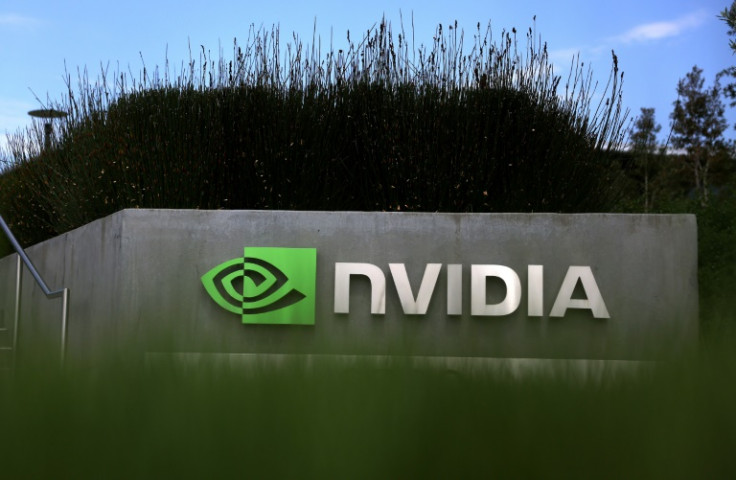Nvidia Quarterly Profit Soars On Demand For AI Chips

Nvidia on Wednesday said its profit soared to $12.3 billion in the recently ended quarter on record high revenue driven by demand for its chips to power artificial intelligence.
The Silicon Valley chip titan reported record revenue of $22.1 billion in the quarter than ended late January and record high revenue of $60.9 billion for the fiscal year.
Profit in the same quarter a year ago was $1.4 billion, while revenue in the same three month period a year earlier was $6 billion, the company said.
"Accelerated computing and generative AI have hit the tipping point," Nvidia chief executive Jensen Huang said in a statement.
"Demand is surging worldwide across companies, industries and nations."
Nvidia shares shot up more than eight percent to $733.68 in after-market trade that followed release of the earnings results.
Money taken by its unit specializing in data center computing hit a record of $18.4 billion in the quarter, more than quadruple the amount from the same period a year earlier, according to Nvidia.
"Our Data Center platform is powered by increasingly diverse drivers," Huang said.
"Vertical industries -- led by auto, financial services and healthcare -- are now at a multibillion-dollar level."
The company said it expects total revenue of $24 billion in the current quarter.
Nvidia chief financial officer Colette Kress had previously warned analysts that new US export control regulations aimed at China and other markets including Vietnam and parts of the Middle East were expected to cause sales of Nvidia data center chips to suffer in those markets.
Nvidia had expressed confidence that strong growth in chip sales in other regions will more than offset what is lost in China, Kresse said.
The United States late last year said it was ramping up curbs on exports of state-of-the-art AI chips to China.
Calls to further close the supply chain grew after the world discovered the powers of AI with the launch of ChatGPT, a tool that debuted in November 2022.
Also causing alarm in Washington was news that China-owned Huawei had released a new smartphone that featured a powerful home-grown advanced chip.
When announcing the beefed-up curbs, US officials insisted they were intended to close loopholes and prevent China's development of AI for military use.
Following the announcement, China said it was "strongly dissatisfied" and "firmly opposes" the curbs.
gc/dw
© Copyright AFP {{Year}}. All rights reserved.





















